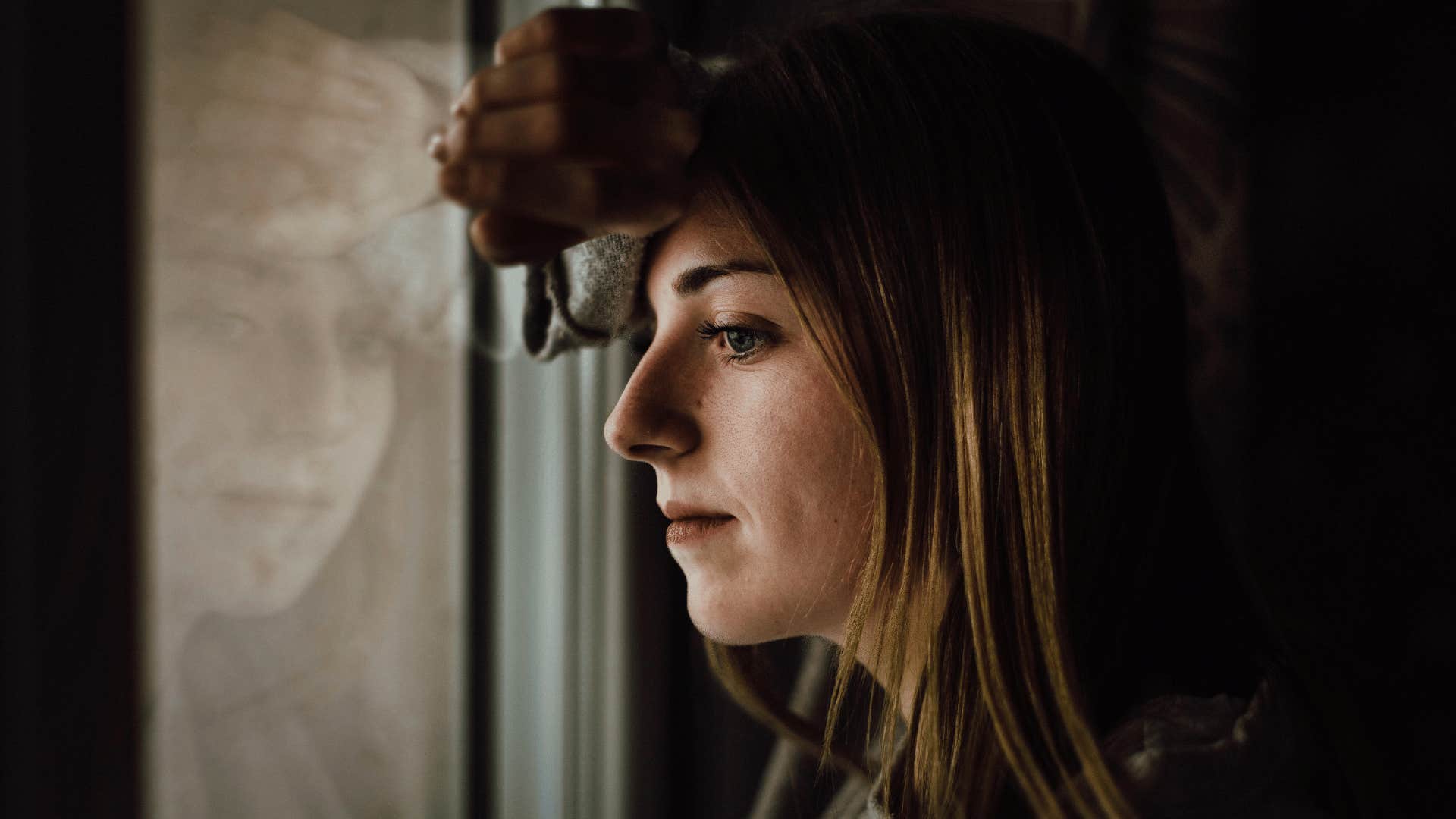People Who Never Fit In When They Were Growing Up Develop 7 Rare Traits Later In Life
Being an outcast in your youth can result in some pretty unconventional traits.
 sergey causelove | Shutterstock
sergey causelove | Shutterstock Growing up, you may have felt like a bit of an outsider, someone who didn't truly belong or fit in anywhere.
Though this could have led to feelings of low self-worth, not fitting in isn't such a bad thing. In fact, being considered a social outcast often leads to the development of unique traits.
Here are 7 rare traits people who never fit in growing up develop later in life
1. Independence
 Ground Picture | Shutterstock
Ground Picture | Shutterstock
Never fitting in creates the most independent people out there. These individuals were considered social outcasts, so they had to learn to pick themselves up by the bootstraps and face life's challenges head-on.
This led to extreme independence, as well as resilience, making it so nothing can stand in their way. Even though they may not have fit the social mold growing up, they are highly adjusted to any circumstances life throws their way.
2. Observational skills
 Juan Pablo Serrano | Pexels
Juan Pablo Serrano | Pexels
People who grew up without fitting in tend to have a key eye for detail. As they moved through the stages of their early life, they were forced to observe others because they were usually excluded from social circles.
But in this case, it isn't a bad thing. Research has shown that introverts perform better during a crisis than extroverts do. It's suggested that it's likely due to introverts having a better understanding of other people's motivations and behavior.
3. Empathy
 Chay_Tee | Shutterstock
Chay_Tee | Shutterstock
Being excluded from society for most of one's upbringing helps build empathy, especially in those of a younger age. Because people excluded knew how it felt to be the odd one out, they go out of their way to ensure it doesn't happen to others.
Alongside being a good person, having empathy has other benefits. A study suggests that higher empathy leads to better mental health, interpersonal relationships, and increased happiness.
4. Authenticity
 mavo | Shutterstock
mavo | Shutterstock
When a person is ostracized, they begin to crave a real connection, whether it's with a friend or a romantic partner. So, it's no secret that these same individuals make for the most authentic people.
Because of their past, they understand the true value of the heart and only seek relationships that are built on mutual trust and respect. This explains why people who didn't fit in growing up have some of the healthiest relationships out there.
5. Objectivity
 fizkes / Shutterstock
fizkes / Shutterstock
Objectivity is the ability to see things from different perspectives. This rare trait is common in people who were considered social outcasts. They have the ability to hear all sides of an argument, and that's likely because they spend so much time alone.
One study that found adults who spent time alone tended to self-reflect more, and develop greater patience and spirituality during their isolation.
6. A drive for self-improvement
 PeopleImages.com - Yuri A | Shutterstock
PeopleImages.com - Yuri A | Shutterstock
Those who never fit in are always looking for ways to improve themselves. And it's likely because they're trying to prove their self-worth since they were seen as outcasts. Truthfully, they feel the need to be at the top of their game.
Unfortunately, this might come from a place of insecurity. After all, feeling the need to constantly prove your worth is never a good thing. And, according to one study, higher levels of perfectionist tendencies are associated with worsening mental health and an increase in self-destructive thoughts.
7. A fear of abandonment
 MART PRODUCTION | Pexels
MART PRODUCTION | Pexels
For people who are introverted and have been this way since they can remember, in some instances this can be beneficial. However, like anything in life, there are some downsides, the biggest being the fear of abandonment.
People who never fit in have a fear of being cast to the side whenever they enter into a new relationship. For most of their life, this same cycle of abandonment repeated itself over and over again. Is it any wonder they feel this way?
With that being said, continuing to have this fear is harmful in the long run. According to Newport Institute, those who suffer from abandonment anxiety experience distress, difficulty trusting others, low self-esteem, and anger issues. And if someone doesn't work on their own insecurities before entering into a relationship, they could jeopardize a beautiful thing.
Marielisa Reyes is a writer with a bachelor's in psychology who covers self-help, relationships, career, family, and astrology topics.

